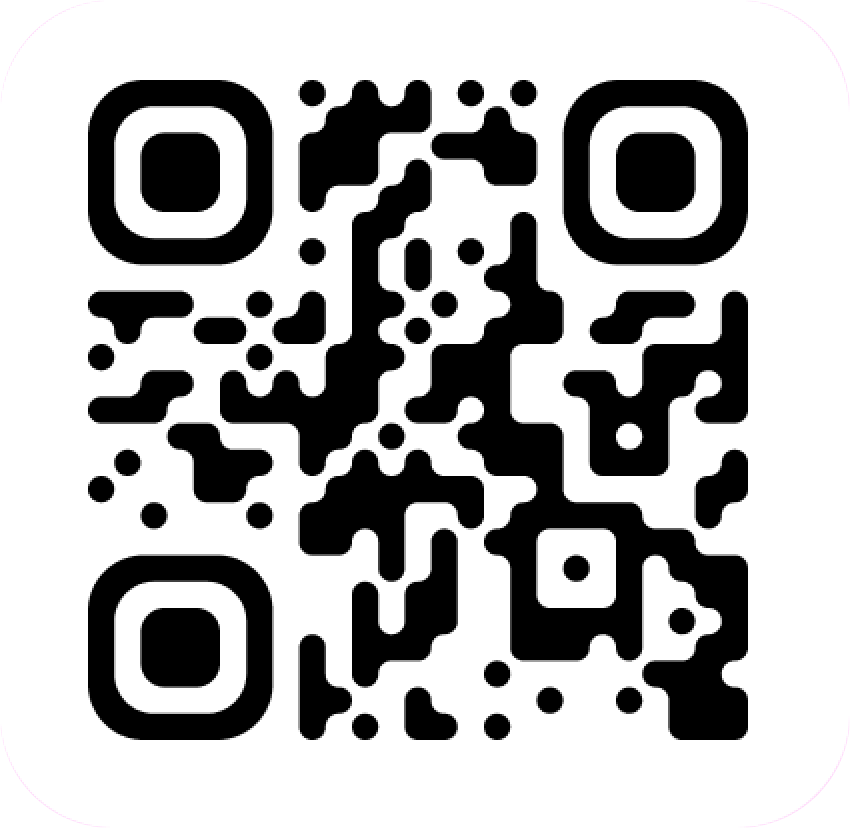Hyper-personalization: The new loyalty driver
Updated: April 1, 2025

By Ben Barnhart
Senior Product Marketing Manager

Omni-channel marketing isn't just an option anymore. It's necessary.
In an era of digital transformation, businesses face unprecedented challenges in customer engagement and retention. The first session of our 2025 Customer Loyalty Playbook webinar series shed light on these challenges and offered innovative solutions for brands looking to stay ahead in the competitive landscape. See the full session here.
TL/DR: Personalization at scale is no longer optional – it's a necessity. Businesses that fail to deliver hyper-personalized experiences risk losing customers to competitors who excel in conversational AI and automation platforms.
The personalization paradox: Why brands struggle to connect
At the heart of modern marketing lies a complex challenge: communicating clearly with a diverse array of consumers, each with unique preferences, while maintaining authenticity and scale. This challenge manifests in two primary ways:
- Navigating the digital maze
Brands must identify the right channels, timing, and messaging to reach their customers effectively. With an ever-expanding array of digital touchpoints—from social media platforms with ever-changing algorithms to emails that may never be opened—finding the right mix is more crucial than ever. - Hyper-personalization at scale
In a world where first-party data is becoming increasingly scarce due to privacy concerns and regulatory changes, businesses struggle to gather the insights needed for truly personalized communication.
The rise of conversational commerce
As traditional marketing playbooks lose effectiveness, a new paradigm is emerging: conversational commerce. Recent studies reveal a striking shift in consumer preferences, with 72-79% of adults surveyed expressing a preference for messaging businesses directly.

This trend is driven by three key factors:
- Convenience
Consumers appreciate the immediate, asynchronous nature of messaging, which fits seamlessly into their busy lives. - Familiarity
Messaging apps are already an integral part of daily communication for most people. - Mobile-first experience
With 34-48% of smartphone owners shopping on their devices weekly, messaging apps provide a natural extension of the mobile shopping experience.
WhatsApp for customer engagement: The European frontier
Contrary to the misconception that business messaging is only relevant in markets like India or Brazil, the webinar highlighted its growing importance in Europe. In Germany, for instance, WhatsApp dominates the messaging landscape, presenting a significant opportunity for businesses to engage with customers on their preferred platform.

But how can companies balance AI-driven automation with authentic, personalized customer engagement to foster long-term loyalty?
The answer lies in leveraging advanced AI technologies that go beyond traditional chatbots. These AI-powered solutions can engage in natural, context-aware conversations, understanding nuances, sentiment, and intent to make interactions feel more human. By analyzing past conversations, purchase history, and behavior, they deliver hyper-personalized responses, dynamically adjusting tone and style based on customer preferences.
The ROI of WhatsApp marketing: what the data tells us
To quantify the impact of WhatsApp marketing, charles commissioned a Forrester Total Economic Impact (TEI) study. The results, based on a major European fashion retailer's experience, were striking:
- 249% ROI over three years
- Payback period of less than 6 months
- Financial benefits totaling almost €1.2 million in Net Present Value
These impressive figures were driven by four main factors:
- Improved customer engagement
The retailer saw a 550% increase in engagement through personalized, event-driven campaigns that went beyond simple discounts, incorporating gamification and urgency tactics. - Significant increase in conversion rates
Click-to-conversion rates jumped from 3.3% to 12.2%, a 267% improvement attributed to personalized offers and interactive campaigns. - Long-term subscriber growth
WhatsApp became a key acquisition channel, with an additional 173,000 subscribers gained across Europe within the first few months. - Operational cost savings
By replacing their legacy system with a more efficient WhatsApp marketing solution, the retailer eliminated vendor fees and reduced downtime issues.
Beyond these quantifiable benefits, the study also highlighted several unquantified advantages, including improved customer experience, enhanced brand loyalty, and richer customer insights.
Real-world success stories
The webinar showcased several case studies demonstrating the versatility and effectiveness of WhatsApp marketing across various industries and use cases:
- Takko Fashion
This discount fashion retailer with nearly 2,000 stores across 17 countries used WhatsApp to drive in-store visits and engage customers beyond traditional app notifications and email marketing, resulting in an 82% uplift in in-store purchases per store per day and a +7% in-store conversion rate during the campaign. - Volkswagen
For their EV car launch in the UK, Volkswagen leveraged click-to-chat ads on Facebook Messenger to generate over 1,200 test drive sign-ups, effectively bridging the gap between online engagement and offline experiences, resulting in a 3x higher CTR vs. their website configurator. - fashionette
This luxury e-commerce fashion company saw a 7.4x higher conversion rate from WhatsApp compared to their most engaged email newsletter segment, demonstrating the power of immediate and tailored content delivery. - Jack Wolfskin
By using WhatsApp to establish direct relationships with customers, Jack Wolfskin was able to gather valuable first-party data and customer insights, achieving completion rates of over 90% for preference-related questions during the opt-in process. - Dermalogica
The skincare brand owned by Unilever used WhatsApp to scale personalized skincare advice, allowing customers to receive instant, expert-backed product recommendations that mimicked professional consultations. - Burnhard
This premium BBQ brand implemented WhatsApp automations to handle high volumes of product inquiries, resulting in 35% of inquiries being resolved automatically and freeing up support teams for more complex requests.
Addressing common concerns
As businesses consider implementing WhatsApp marketing, several questions often arise:
- Company size and eligibility
WhatsApp marketing can be beneficial for companies of various sizes. While larger enterprises may have more resources to implement comprehensive strategies, smaller businesses have the advantage of testing and iterating much faster and can also leverage the platform effectively by starting with targeted use cases and scaling gradually. - B2B vs. B2C applications
While WhatsApp has shown remarkable success in B2C contexts, its application in B2B scenarios requires a different approach. B2B clients may be more reserved about engaging through messaging apps for professional purposes. However, success stories exist, such as one of the top two soft drink companies in the world effectively using WhatsApp for B2B to bridge the gap between distributors and small shop owners. The key is to tailor the approach to the specific needs and preferences of the business and the particular use case. - Building communities
While WhatsApp's primary strength lies in facilitating one-on-one conversations between brands and customers, community-building can be achieved through strategic use of broadcast lists and group chats, always ensuring compliance with WhatsApp's policies. - Integration with existing systems
Modern WhatsApp marketing solutions often offer robust integration capabilities with existing CRM systems and e-commerce platforms. When choosing a solution, it's crucial to consider the specific integrations that align with your current tech stack and business needs. See integrations we offer here.
The future: AI-driven personalization
As we look towards 2025 and beyond, the role of AI in enhancing personalization and consumer experiences becomes increasingly critical.
Three key principles should guide the implementation of AI in customer engagement strategies:
- Results-driven AI
AI solutions must demonstrably impact business outcomes, going beyond simple automation to drive tangible improvements in customer engagement and conversion rates. - AI should use personalization at scale
AI should leverage customer data intelligently to deliver truly personalized experiences, adapting to individual preferences and behaviors in real-time. - Brand safety will be the make or break
As AI becomes more prevalent in customer interactions, ensuring brand safety and maintaining control over AI-driven communications is paramount.
Find out more on our approach of combining AI with conversational experiences to deliver results and meet customers need for hyper-personalization.
Key takeaways and next steps
It’s clear that conversational messaging platforms, particularly WhatsApp, are no longer optional for businesses aiming to thrive in the digital age.
To leverage this opportunity effectively, brands should:
- Assess their current customer journey, identifying touchpoints where conversational commerce could enhance the experience.
- Identify key use cases specific to their industry and customer base.
- Choose the right partner with expertise in implementing and optimizing conversational commerce solutions.
- Start with targeted approaches, then scale and automate as they see results.
- Continuously measure performance and optimize their strategy based on data-driven insights.
In conclusion, the future of customer loyalty lies in the ability of brands to engage in meaningful, personalized conversations at scale.
By embracing conversational commerce and AI-driven personalization, businesses can not only meet but exceed customer expectations, fostering long-term loyalty in an increasingly competitive digital landscape.
As we move towards 2025, those who adapt to this new paradigm will be best positioned to thrive in the age of AI-powered customer engagement.
Want to learn more about how charles can help you implement conversational commerce and AI-powered personalization? Book a demo today to see how our platform can transform your customer engagement strategy.
Jump to

.webp?width=1203&height=677&name=ForresterStudy%20(1).webp)



